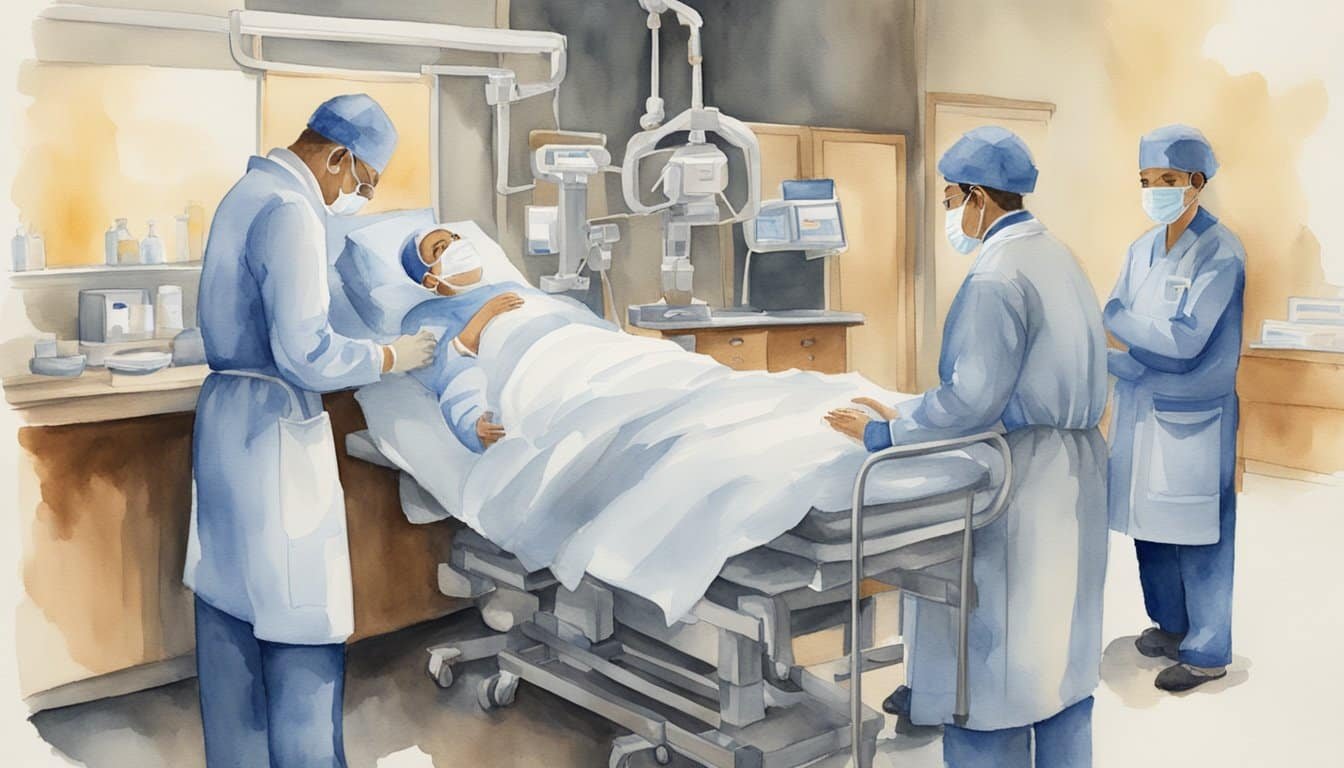Appendix Functions and Evolution
Despite its small size, the vermiform appendix plays an intriguing role in the human body. It’s a haven for beneficial bacteria and an integral part of the immune system.
Immune Functions
The appendix is often overlooked, but it contains lymphoid tissue which plays a part in the immune function. During early life, the appendix works as a lymphatic organ, helping to mature certain types of white blood cells and possibly playing a role in the body’s defense mechanisms. Intriguingly, the appendix has been seen to act as a safe house for the body’s beneficial bacteria, which assists in recovering from diarrhea and other intestinal disturbances.
Gut Flora Reservoir
The appendix’s relationship with gut bacteria is particularly fascinating. This tiny organ serves as a reservoir for the microbiome, maintaining a safe harbor for beneficial bacteria. After an illness that disrupts gut flora, the appendix can help repopulate the intestines with the necessary microbes to keep the digestive system running smoothly. This suggests an adaptive function over the course of evolution, counter to the outdated belief that the appendix was a superfluous part.
Notably, the immune system and gut bacteria have a mutualistic relationship. They rely on each other, and the appendix appears to be a critical crossroad between them. The concept that the vermiform appendix could be substantially more than a vestigial organ has reshaped the way scientists understand its role in both immunity and the maintenance of a healthy microbiome.
While instances of appendicitis can overshadow understanding of the appendix’s full capabilities, viewing the organ through the lens of contributions to the immune system and gut bacteria storage provides a more comprehensive picture of its evolutionary staying power.
Appendicitis and Medical Response

Appendicitis is a common yet urgent medical condition where the appendix becomes inflamed, potentially leading to serious complications if not treated promptly. It requires swift medical intervention, often involving surgery, to mitigate risks and facilitate recovery.
Identifying Appendicitis
To effectively diagnose appendicitis, healthcare providers look for tell-tale symptoms such as abdominal pain, which typically begins near the navel and shifts to the lower right abdomen. The pain usually sharpens in a matter of hours and is accompanied by other signs like fever, nausea, and vomiting. The diagnosis is sometimes supported by imaging tests like ultrasounds or CT scans to visualize the appendix and confirm inflammation.
Surgical Intervention
When appendicitis is confirmed, the normal course of action is an appendectomy, the surgical removal of the appendix. This procedure can be done through open surgery or, more commonly, using less invasive laparoscopy, which leads to quicker recovery times. If an appendix bursts, causing a medical emergency, doctors must act quickly to remove it and administer antibiotics to combat infection. Post-surgery, patients usually have a recovery period and are monitored for complications like infections or abscesses.
For more detailed information on how appendicitis is identified, check this study on Gangrenous appendicitis and this one about diagnostic accuracy. Additionally, the Appendicitis Inflammatory Response score guides the decision-making process in suspected cases of appendicitis. For insights into the benefits of diagnostic accuracy and the importance of surgical timing, this prospective study explores the implementation of a new appendicitis scoring system.
Additional Roles and Complications

While commonly underestimated, the human vermiform appendix has specific functions in the body and, like any organ, can be prone to complications that merit attention.
Appendix as Part of the Digestive System
Although the appendix is often regarded as a vestigial organ, it plays roles in the digestive and immune systems, especially during the early years of life. Located at the junction of the small and large intestines, specifically where the cecum meets the colon, the appendix is part of the gastrointestinal tract. Some research suggests that the appendix may function as a storehouse for beneficial bacteria that aid in digestion, helping to repopulate the gut flora after diarrheal illnesses.
Potential Complications
The appendix, while small, can become inflamed, leading to a condition known as appendicitis, which is marked by a painful swelling of the organ. If left untreated, an inflamed appendix can rupture, resulting in peritonitis, a serious infection of the abdomen, or lead to an abscess, which is a localized collection of pus. These complications can affect other areas of the digestive tract, highlighting the appendix’s potential role in broader intestinal health. Prompt medical attention is crucial to prevent these potentially life-threatening conditions.

